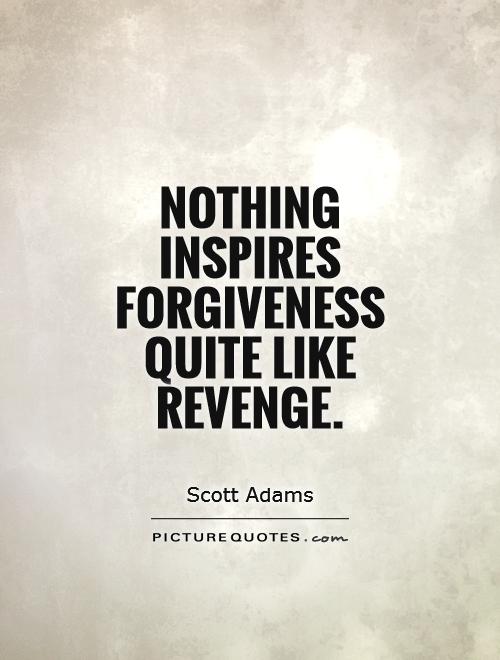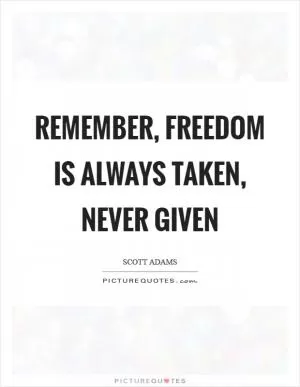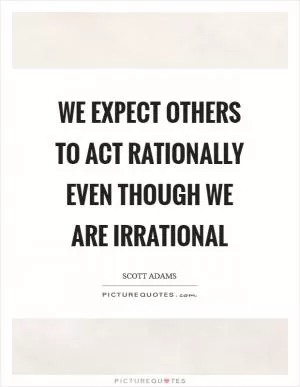Nothing inspires forgiveness quite like revenge

Nothing inspires forgiveness quite like revenge
Scott Adams, the creator of the popular comic strip Dilbert, is known for his witty and satirical take on office culture and corporate life. However, Adams is also a controversial figure, often making headlines for his provocative statements and unconventional views on various topics. One of his most famous quotes is, “Nothing inspires forgiveness quite like revenge.”This quote encapsulates Adams’ belief that revenge can be a powerful motivator for forgiveness. In his view, when someone seeks revenge on another person, it can lead to a sense of closure and resolution that ultimately paves the way for forgiveness. This idea may seem counterintuitive at first, as revenge is often associated with anger and resentment. However, Adams argues that revenge can actually be a cathartic experience that allows individuals to move past their hurt and anger towards forgiveness.
Adams’ perspective on forgiveness and revenge is complex and thought-provoking. He suggests that revenge can serve as a form of justice, allowing individuals to right the wrongs that have been done to them. By seeking revenge, individuals can assert their power and agency in a situation where they may have felt powerless or victimized. This sense of empowerment can be a crucial step towards forgiveness, as it allows individuals to let go of their anger and resentment towards the person who wronged them.
However, Adams’ quote also raises important questions about the nature of forgiveness and revenge. Is revenge truly a necessary precursor to forgiveness, or can forgiveness be achieved without seeking revenge? Is revenge a healthy and productive way to deal with hurt and betrayal, or does it only perpetuate a cycle of violence and resentment? These are complex and nuanced questions that have been debated by philosophers, psychologists, and ethicists for centuries.












 Friendship Quotes
Friendship Quotes Love Quotes
Love Quotes Life Quotes
Life Quotes Funny Quotes
Funny Quotes Motivational Quotes
Motivational Quotes Inspirational Quotes
Inspirational Quotes